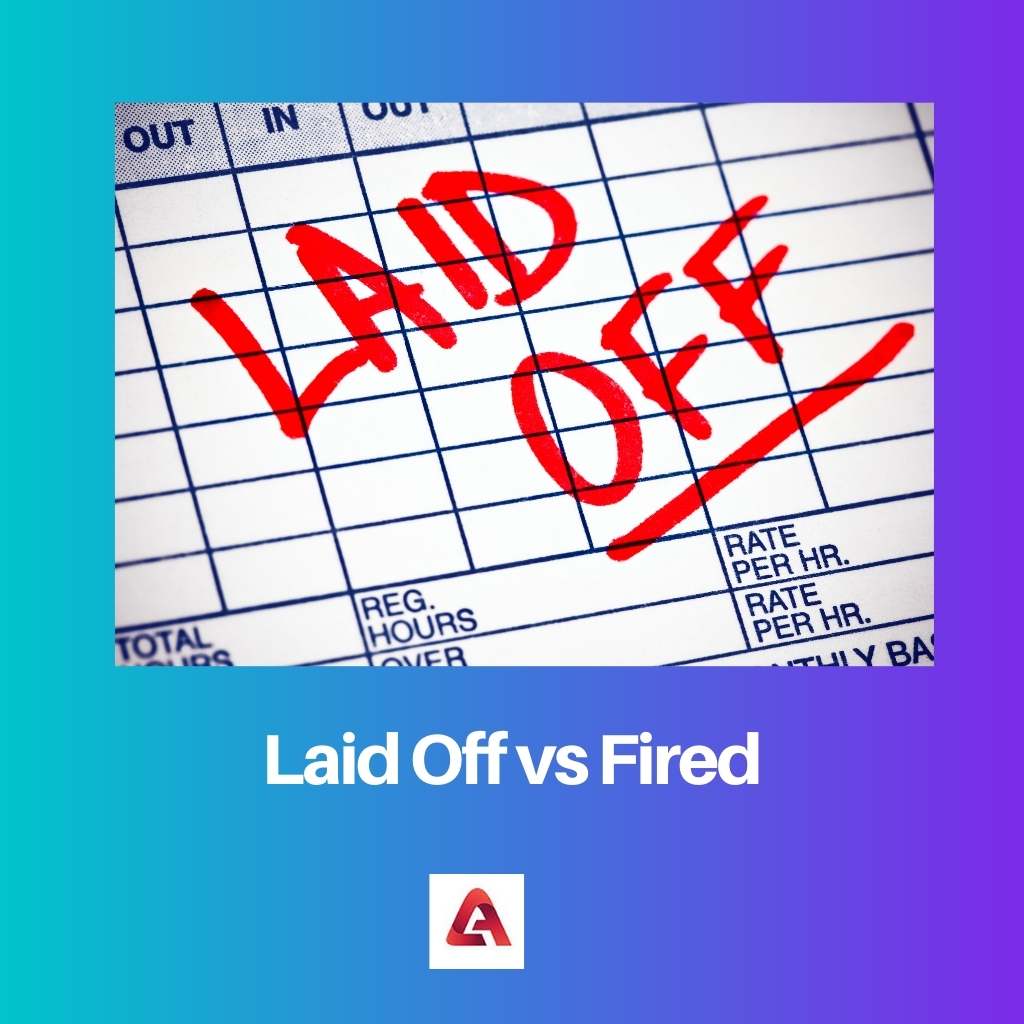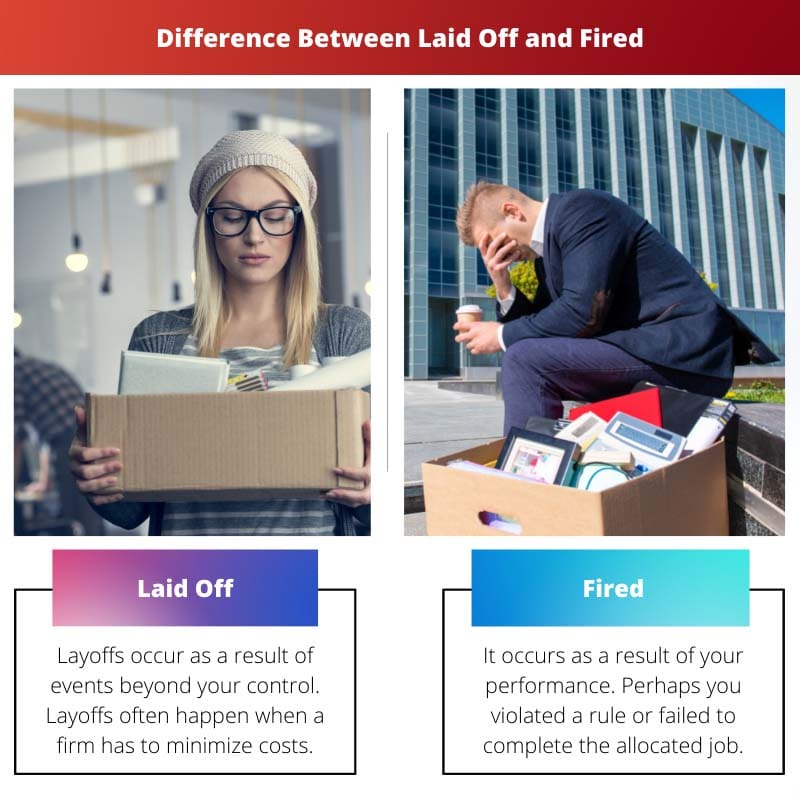Unemployment may be one of life’s most unpleasant situations. The greater the consequence of a job loss on an employee’s career, the higher their position in the corporate hierarchy was.
Key Takeaways
- Laid off refers to employees losing their jobs due to organizational changes, such as downsizing or restructuring, whereas fired implies termination due to an employee’s poor performance, misconduct, or violation of company policies.
- Layoffs can be temporary or permanent, while firing is a permanent job loss for the affected employee.
- Employees laid off may receive severance packages, job placement assistance, or unemployment benefits, while fired employees are less likely to receive such support.
Laid Off vs Fired
The difference between Laid off and Fired is that a layoff is the company’s responsibility, but a firing is the employee’s mistake. Most layoffs occur due to the firm attempting to cut expenses, reduce employees, etc. Getting fired is when an employee is fired for failing to satisfy the requirements of the firm owner.

Employees who are laid off may get severance pay or advantages from their company, which may include a wage or insurance for a limited period as well as outplacement facilities, such as support in finding a new job.
Being fired means being dismissed for reasons that are within your hands, including misbehaviour, poor work performance, taking more time off, or failing to adhere to business standards or rules. An employer can terminate an employee without having to defend his or her decision.
Comparison Table
| Parameters of Comparison | Laid Off | Fired |
|---|---|---|
| Reason | Layoffs occur as a result of events beyond your control. Layoffs happen when a firm has to minimize costs. | It occurs as a result of your performance. Perhaps you violated a rule or failed to complete the allocated job. |
| Package of Repercussions | Many firms provide severance compensation to laid-off employees. This is intended to lessen the effect of losing a regular salary. | Individuals who are fired are not given severance compensation, even if they are terminated for wrongdoing. |
| Meaning | It denotes the temporary suspension of a person from work owing to the incapacity of the firm to supply occupation. | To fire an individual implies to dismiss from employment against the consent due to poor performance. |
| Position | When an individual is laid off, his or her place is not replaced. | The worker’s job gets refilled as a result of this. |
| Degree of Severity | The severity level in Laid off is low. | The severity level in Fired is high. |
What is Laid Off?
Being laid off indicates that you have compromised your employment as a result of changes made by the firm. The distinction between being laid off and being fired is that if you are terminated, the firm perceives your conduct as the reason for the termination.
Workers may be laid off because a firm has chosen to reorganize its organization, has to shrink a sector, or cannot consistently offer positions for all of its employees. Regrettably, during the epidemic, this is a typical occurrence.
Also, inquire if your boss is prepared to send you a character reference as well as a LinkedIn endorsement. This is beneficial because it provides it simpler to demonstrate to future employers that you were cut loose for circumstances beyond your control rather than through your own mistake as a professional.
What is Fired?
If you have been dismissed, you shall request that the reason for your dismissal be communicated to you in the paper. This is critical if you believe you were wrongfully terminated.
You may be capable of negotiating your severance compensation depending on your length of service with the employer. However, if you have been dismissed, you will quite likely not be eligible for unemployment benefits.
It’s preferable to take the moral high ground while you’re working things out with the corporation. If you’re asked what occurred during a hiring process, provide a brief but honest response.
Main Differences Between Laid Off and Fired
- The term “layoff” refers to the temporary suspension of an individual from work owing to the company’s incapacity to supply employment. To fire a worker implies removing them from employment against the will due to poor performance.
- When a worker is laid off, his or her employment is not replaced. But, when an individual gets fired, the job gets refilled or can say that the employment is replaced.




